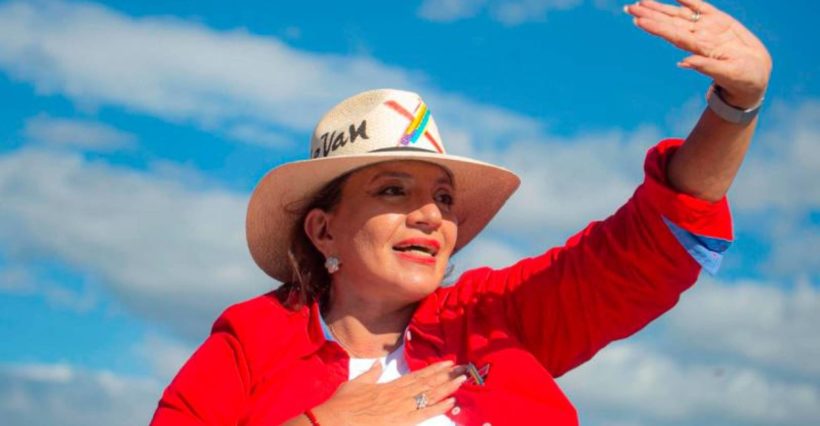The humiliations suffered by undocumented Central American migrants who try to cross Mexico to reach the United States, seeking safety from the institutional violence of the narco-state, in the case of Guatemala, El Salvador and Honduras, have hurt a lot. The famous northern triangle that is so much touted here and there by politicians in the discourse of transnational companies who, in exchange for a crumb they throw from the rocking chair where they recline, placid and indifferent, take the entrails of the land they are drying up, because it is not theirs, it is that of the peoples who have been sullied for centuries.
Corruption-infested, impoverished and violated peoples who have been forced to emigrate on those great pilgrimages that the press no longer pays attention to because they are our daily bread. Rapes, kidnappings, murders, nothing scares anymore, they are migrants, the last of the last. With the small variant that for the last decade entire families have been migrating, with their children in tow, with tears like a salty sea running down their cheeks, burst by the sun. Lips split, bleeding, feet cracked, souls broken.
Honduran women, because of their mulatto physiognomy: solid, robust flesh, broad backs, mare’s hips, are the most exploited in sex trafficking along the migration route. The clandestine graves in Mexico are full of them, because once they are useless, they disappear. And those Central American mothers who cry out year after year, looking for them, will never find them alive. The reality is cruel, but hope is the only encouragement.
Canada and the United States are full of these migrants who go to leave what is left of their loins, in the fields, in the gardens of large mansions in the northern suburbs, in bricklaying, in the maintenance trades: in houses, offices and shopping centres. The last of the last is the Latin American undocumented migrant, but it is well known that the Mexican and Central American is the most sought after because he is the one who performs the best and is paid the least. They are the ones who migrate from the depths of the slums and inhospitable villages, most of them without knowing how to read or write.
The coup d’état against Manuel Zelaya in 2009 was a blow to the heart of the Honduran people, and we have seen the results : families migrating in large caravans. The narco-state of Felipe Calderón and Peña Nieto made a dent in Central American territory, the unscrupulous scoundrels decided to make Guatemala, El Salvador and Honduras the Central American version of Colombia.
The story is written in whitewash, seas of tears have been shed, the pain, like an open wound, throbs raw in the memory of the migrants who mourn their dead and their disappeared. That to raise our voices, to have a different ideology, to seek justice, to fight against impunity is not worth our lives. Nor is seeking food, shelter and opportunity.
In the year of the post-pandemic, the unbelievable happened, Honduras decided to stand up, honouring all those who were silenced the hard way, all those who were thrown into exile and oblivion, all those who were left on the path of the migratory route, all those who will never return, all those who dream of returning, those who yearn.
To those who love that little piece of land: a jícara with atol de pinol, a piece of tender mango with lemon and salt, the fresh water of the rivers, the sounds of the open sea, the shade of the tamarind trees, the wet tile at dawn. The smell of burning firewood, the burning ocote in grandma’s polletón, the hands of the grandfather whose eyesight has dried up waiting. To those who dream of arriving at the village cemetery to flower their dead.
To those who wait with open arms for the return of their loved ones. For the land to blossom, for orange blossoms to perfume the afternoons, for people to walk without fear in the streets of a country that has been brought to its knees by ungrateful children who disrespected the womb that bore them. To those who are waiting for the Abortion Law, Equal Marriage, the right to education, health, retirement, agrarian reform. In short, to those who dream of the rebirth of Honduras.
It is not an easy task for Xiomara Castro, but we know that with dignity, love, humility, memory and hard work she will be able to carry out to the full the responsibility that the Honduran people have placed on her.
The Central American women of the people, people, in memory of Berta Cáceres and so many others, salute Xiomara Castro, hoping that she will fulfil her campaign promises without forgetting the original peoples, the slums, the gender rights that are so lacking and the thousands of Hondurans who yearn to return from the diaspora.






